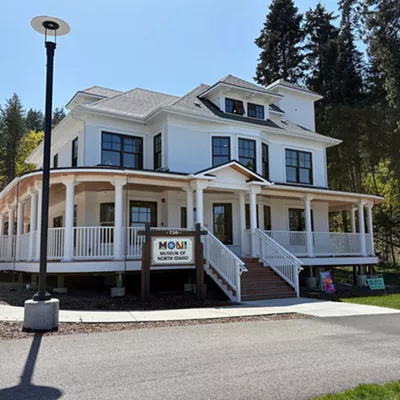
For people attending a community forum at Shadle Park Library in February of last year, math wasn’t boring. In fact, for some, it was downright infuriating.
Called by activists upset over the way Spokane was teaching math, the meeting devolved into accusations, raised voices and sarcasm.
Nearly every school subject is accompanied by a how-to-teach argument. Reading raises the debate over phonics, biology has evolution, history has politics. But, in Spokane, the fight has been largely about math.
Nationally, they’ve been dubbed the “math wars.” Should teachers focus on critical thinking and student exploration? Or, instead, go back to the blackboard with classic formulas and heaps of calculator-free homework?
Shelley Redinger, first-year superintendent of Spokane Public Schools, thinks it’s time to lay down arms. “We’ve got to quit fighting the math wars in Spokane,” she says.
And as the district prepares to choose a new elementary math school curriculum, she might have a chance to stop them.
A few days before the start of school, veteran second-grade teacher Susan Surby slides red and white beads across the “rekenrek,” a stripped-down abacus. She uses this to teach her second-graders to think in terms of counting by fives and 10s. It’s one of many ways elementary math has changed in the past 20 years; Surby tries to teach her kids how to think, instead of what to think.
She opens up the colorful Investigations textbook, clearly part of the “reform” side of the math wars. Spokane has used this curriculum to teach math since 1998.
Reformers believe that memorization of formulae, tables and processes are less important than children understanding how math works. It’s about exploration. Students may be asked to figure out their own ways of solving entirely new types of problems. They may teach math to each other. They might be taught multiple methods to solve the same sort of problem.
“Last year we had six different strategies to add two-digit numbers,” Surby says.
And none of those six strategies included the traditional vertical method, the sort where you’d “carry the one.” In fact, when she sees her students bring in homework completed that way, she calls their parents and asks them not to teach their children to use the traditional method yet.
“The kids will come up with all different strategies that make sense to them,” she says. “It doesn’t always make sense to parents.” But as long as it works for students, she says, it can be a good place to start.
Eventually, by the third grade, the children are taught the traditional method, she says. It’s required for the recently created standardized MSP state test. But by then, ideally, they understand exactly why they’re carrying the one.
Yet, in Spokane, some of the most vocal parental activists have been horrified.
“I know parents who can’t help their elementary-age children with math homework because it doesn’t make sense to parents or students,” Spokane parent and school volunteer Breann Treffry writes in a list of complaints reprinted on education blogs. “I know volunteer tutors who’ve been refused because they teach traditional math methods rather than ‘fuzzy’ math.”
Fighting back against the reformers are the traditionalists. They want math to be taught with direct classroom-instruction, the most effective methods for problem-solving and lots and lots of calculator-free practice. In 2010, traditionalists filed a lawsuit against the Seattle school district for its new “Discovering Math” curriculum. The school district lost.
And Spokane’s current elementary school curriculum hasn’t always scored well.
When the Washington State Board of Education hired a firm to review math curricula in 2008, it found serious problems. While the firm praised the explanation of concepts found in Investigations, the study also said a “typical student would not be well prepared for the next level of Washington mathematics using only this program.”
Ultimately, the curriculum was not recommended.
More than a decade ago, Redinger was in charge of the curriculum for the Richland School District. She says she helped the district choose Investigations; but, today, the school officials have switched to enVision — a curriculum balanced between reform and traditional math.
Redinger says she favors that balanced approach. She’s been an administrator in several states in the past 14 years, and says most of them have moved past the “math wars” while Spokane has continued to fight the battle.
“The kids lose when adults are not in agreement,” Redinger says. “We need new materials at the elementary level.”
Fortunately, it’s an ideal time to switch. The textbooks are not only at the end of their traditional seven-year replacement cycle, but with Washington state adopting tougher, nationwide “common core” standards, textbooks in all sorts of subjects — including math — will need to be replaced.
High school classes have already switched to a middle ground: they pepper a traditional math curriculum, Holt Mathematics, with strategies beloved by reformers. While some of the district’s critics have still complained about the compromise, Redinger says she sees a lot more acceptance of the math curriculum at the high schools. She hopes a balance at the elementary level will take away some of the debate.
Redinger promises to be very involved in the search. But that doesn’t mean she already has a curriculum picked out. Part of ending the math wars, she says, is making sure the community — activists, administrators and parents — are involved in the decision. “I think we need to avoid making our minds up on something before having discussion,” Redinger says.
But even if the new curriculum results in a détente, other battles loom.
“Why is Spokane Public Schools preparing to spend several million taxpayer dollars on untested, unproven, and largely unseen curricula based on the Common Core State Standards (CCSS)?” reads the post of one local education blogger.






















